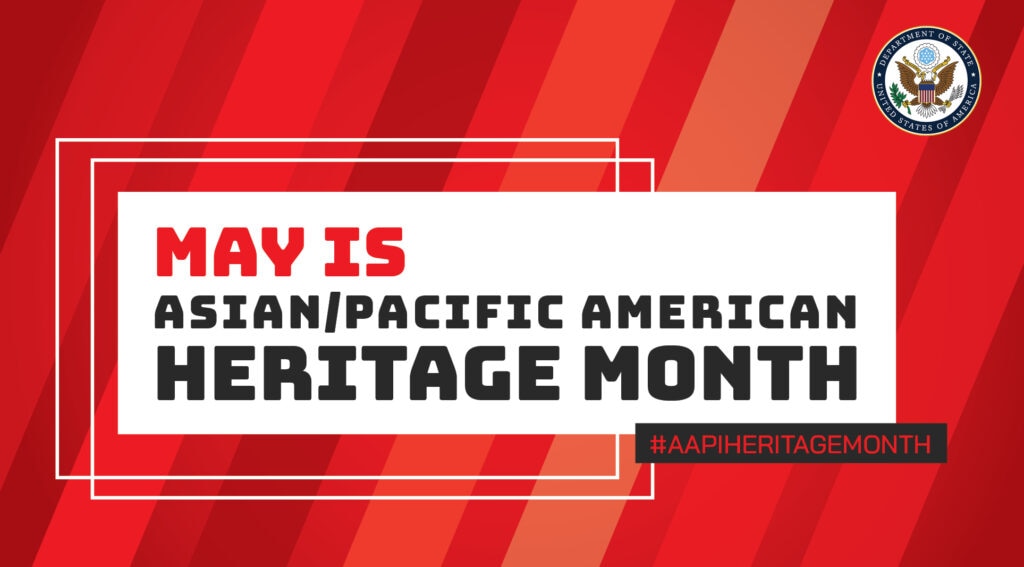
The Federal Asian Pacific American Council chose the subject for this year, “Advancing Leaders Through Collaboration,” to continue the leadership advancement theme series that started last year. (Asian Pacific American Heritage)
The month provides a chance to speak up, share experiences, and dispel misconceptions about Asian communities. According to Cynthia Choi, co-executive director of Chinese for Affirmative Action and co-founder of Stop AAPI Hate. However, it’s not the only occasion to recognise the variety or culture of Asia.
According to Choi, “Our history is also full of incredible tales of resiliency, perseverance. And a commitment to fighting for our fundamental rights.” our is a celebration of our history, culture. And all the various ways that our community has shown that it is not only here to stay but also a vital part of the fabric of our nation.
It Was A Week Before It Became A Month.
Former Capitol Hill employee Jeanie Jew came up with the idea for the month, and Rep. Frank Horton came up with the legislation that established it.
According to Time, Jew’s great-grandfather M.Y. Lee immigrated to America from China in the 1800s before working on the construction of the transcontinental railroad. In California, Lee rose to prominence in business before moving to Oregon. He was murdered amid an uprising and anti-Asian attitude era.
Later, in 1992, Horton testified before Congress that “Mrs. Jew turned a personal tragedy in her family history into a positive force.”
Horton put up a resolution in 1977 to create Pacific/Asian American Heritage Week. Similar legislation was filed to the Senate by Sen. Daniel Inouye.
The next year, Horton submitted a different resolution that was approved with Rep. Norman Mineta as a coauthor. In October 1978, President Jimmy Carter gave his signature.
The president was “authorised and requested” by the resolution to declare May 4–8, 1979, to be Asian Pacific American Heritage Week. Additionally, it urged people in the United States, especially teachers, to celebrate the week with “appropriate ceremonies and activities.”
Later, in 1990, Congress approved legislation extending the holiday to a full month. Congress enacted a new statute two years later designating May as Asian Pacific American Heritage Month each year.
Why May Was Chosen As AAPI Heritage Month
Two significant dates—May 7 and May 10—were included in the legislation that established May as Asian Pacific American Heritage Month each year.
The initial Japanese immigrants to the country arrived on May 7, 1843. Additionally, May 10, 1869, also known as “Golden Spike Day,” commemorates the completion of the nation’s first transcontinental railroad, to which Chinese labourers made major contributions.
According to History.com, 15,000 to 20,000 Chinese immigrants played a significant role in the construction of the railway, which connected the West Coast to the East Coast. James Strobridge, the project manager, first thought the immigrants were unqualified for the position. However, the railway required labour, and many white individuals lacked interest.
According to the Chinese Railway Workers in North America Project. The Sierra Nevada region’s working conditions were appalling and Chinese employees weren’t paid equally to white employees. According to the initiative, Chinese workers had to pay for their own food and put in more hours than white workers did.
According to History.com, the railway was essential to the expansion of the American West. It reduced cross-country travel time from months to less than a week.
The Topic For This Year Is Developing Leaders Through Collaboration. (Asian Pacific American Heritage)
The topic was chosen by the Federal Asian Pacific American Council. A nonprofit organisation that represents Asian Americans, Native Hawaiians, and Pacific Islanders in the federal and D.C. administrations.
The Advancing Leaders series, which started in 2021 and will go through 2024, is built upon by the subject. Advancing Leaders through Purpose-Driven Service was the topic from the previous year.
Vice President of FAPAC Fahmida Chhipa told NPR that “the magnitude of what you can accomplish is enormous when you have diversity at the leadership table.” You truly broaden your horizons to come up with something original and interesting.
In addition, Chhipa says that cooperation may result in invention. The subject this year, according to the council, “further highlights FAPAC’s efforts in advancing leaders in the Federal and DC governments,” according to a news release.
FIND THIS INTERESTING? CLICK HERE FOR MORE CONTENT LIKE THIS.
